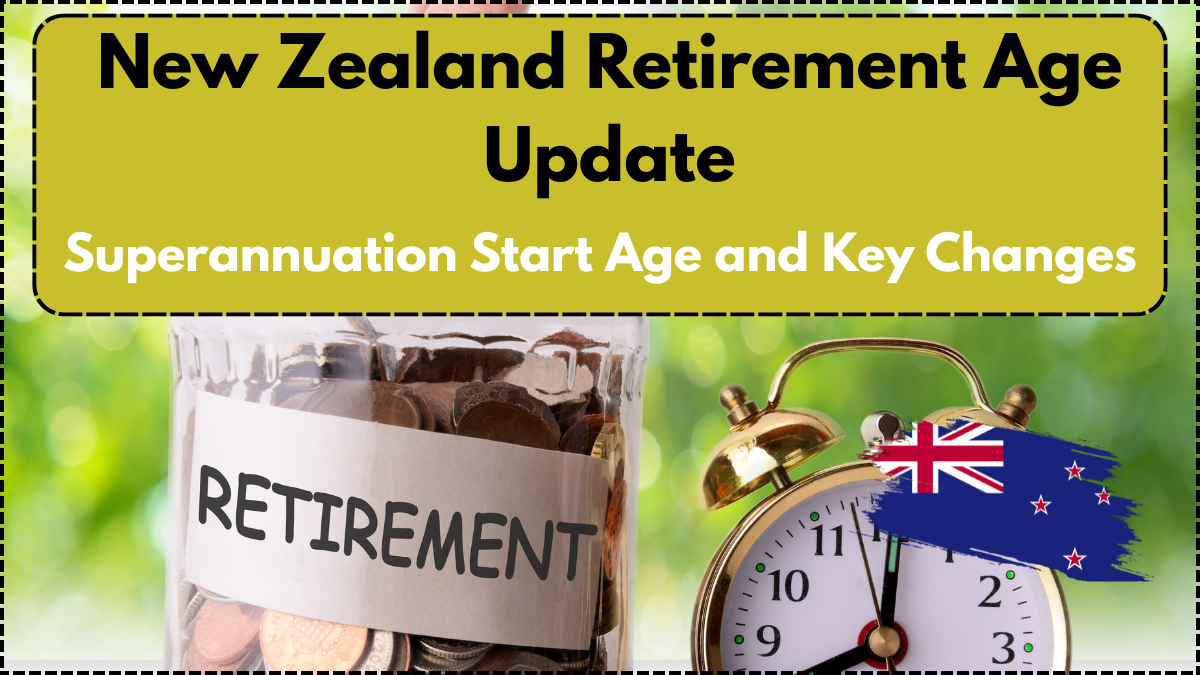As of May 2025, New Zealand’s retirement system is undergoing key changes aimed at adapting to demographic shifts and economic sustainability. The age at which residents become eligible for New Zealand Superannuation (NZ Super) remains a cornerstone of these updates, and both current and future retirees need to stay informed about how the system is evolving.

Superannuation Eligibility Age in 2025
As of now, the qualifying age for NZ Superannuation remains 65. Despite ongoing discussions and reviews over the years, the government has not yet legislated an increase. However, with an aging population and increasing life expectancy, policymakers are actively exploring phased age increases to reduce fiscal strain. While no immediate shift has been confirmed for 2025, the Ministry of Social Development is expected to release a white paper later this year proposing a gradual increase starting in the early 2030s.
Eligibility still requires meeting both residency and citizenship requirements. Currently, individuals must have lived in New Zealand for at least 10 years since the age of 20, with at least 5 of those years after turning 50. There are ongoing reviews about tightening residency rules to align with practices in countries like Australia and Canada.
Key Adjustments to Superannuation Policies
Several supplementary changes have been introduced in 2025 to ensure the system remains equitable:
- Indexation Changes: Superannuation payments will now be indexed against the median wage, rather than average wage growth. This shift provides a more balanced reflection of economic conditions.
- Means Testing Debate: Although NZ Super remains universal and untaxed, the introduction of a tiered benefit system has been proposed, particularly for high-net-worth individuals. This change is under public consultation and may take effect in 2027.
- Flexible Retirement Options: A growing trend toward phased retirement has prompted the government to support flexible pension access. Workers over 60 can now defer their Super payments and receive a higher rate later, encouraging longer workforce participation.
Updated Superannuation Payment Details (May 2025)
Below is a table outlining the current weekly payment rates before tax as of May 2025:
Living Situation | Net Weekly Payment (Single) | Net Weekly Payment (Couple, each) |
|---|---|---|
Living Alone | NZD 547.50 | – |
Sharing Accommodation (Single) | NZD 503.30 | – |
Married/Partnered (Both Qualify) | – | NZD 420.00 |
Married/Partnered (One Qualifies) | – | NZD 420.00 (for eligible partner) |
Note: Figures are based on M tax code and rounded to the nearest 10 cents. Rates are reviewed annually.
Broader Implications for Future Retirees
These updates signal a clear shift towards long-term sustainability. Younger generations should prepare for a future where the retirement age could rise to 67 or beyond, aligning with international trends. KiwiSaver and private pension schemes are increasingly essential, especially for those who anticipate retiring before the official eligibility age.
Workforce participation among people aged 65 and older has reached record levels in 2025. Many are choosing to remain employed part-time to supplement their income and maintain lifestyle standards. The government has responded by offering tax incentives for employers hiring older workers and funding upskilling programs tailored to this age group.
Planning Ahead in a Changing System
Given the likelihood of future policy shifts, it’s more important than ever for individuals to review their retirement plans. Financial advisors recommend diversifying retirement income streams, increasing KiwiSaver contributions, and considering part-time work post-retirement.
With inflationary pressures and longer life expectancy, retirees must plan for potentially 20–30 years of post-work life. Budgeting accurately and accessing tools like Sorted.org.nz can offer tailored retirement planning based on personal circumstances and goals.
FAQ
What is the current retirement age in New Zealand as of May 2025?
The current age to qualify for NZ Super remains 65.
Will the retirement age in New Zealand increase soon?
No changes have been confirmed yet, but the government is reviewing options to raise the age gradually in the 2030s.
Can I receive Super if I haven’t lived in New Zealand my entire life?
Yes, but you must meet residency criteria: at least 10 years in New Zealand since age 20, with 5 years after age 50.
Are Super payments taxed?
NZ Super payments are taxed at your personal income rate. The amounts listed are net of tax, assuming the standard tax code.
Can I defer my Super payments?
Yes. Starting in 2025, eligible individuals can defer payments and receive an increased rate later as part of the flexible retirement options.
Click here to learn more